Interview with Gabriella Palko
For our second interview, we sat down with Gabriella Palko, a photographer, writer, adventure athlete, and environmentalist based in Valdez, Alaska. Gabby’s work captures the breathtaking landscapes of the place she now calls home and we talk about picking up odd jobs, finding a spiritual connection to your art, and following the call to adventure.
Since she landed in Valdez, Gabby's done everything from heli ski to hosting a public radio morning show no prior experience. Her journey and openness have given her the kind of life experience and perspective one might suspect you'd get from spending all your spare time chasing mountaintops. She's truly one of the most interesting people I've met and I'm glad I finally got the chance to sit down with her.
Read some of the interview highlights below:
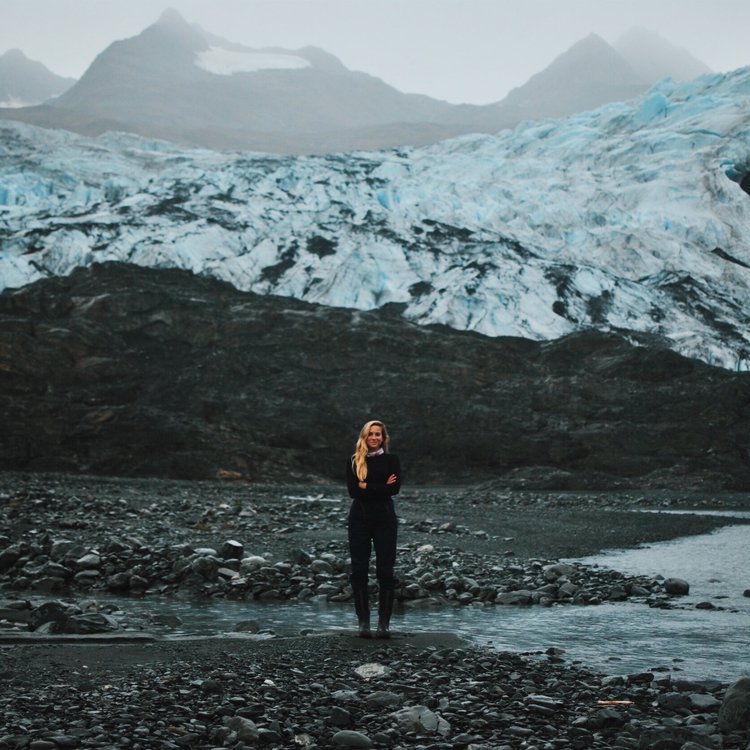
You're a photographer, writer, environmentalist, radio broadcaster - stop me if I'm missing anything - adventure athlete, heli skier slash emergency worker. Does that about cover it?
I don't know if I would add on the last two. I've dabbled in those arenas, but yes, definitely wear a lot of hats and that's how I've always been. And this place kind of suits that, being able to work on and utilize a lot of different facets of yourself, at least for me.
I've always been curious, how do you personally answer the question, "what do you do?"
Usually I laugh like I just did. I mean the nature of my work has changed quite a bit over the last few weeks but I usually lead off with whatever my predominant job is at the beginning. And that has changed a little bit but usually I start off with whoever is actually really paying my bills.
A then I follow up with all the other things that I do, but I guess now that catch all, I do consider myself a creative. I was predominantly working in public radio for the last four years and then made a transition out of that. And now I'm working for a company doing most of their sustainability work and marketing and communications, which has been great cause it's just fully remote, whereas at the radio station, which was totally different. I guess still communications, but having to be at work at six in the morning, every weekday.
So I've been leaning into the being able to sit on my laptop, get my work done and be remote lately, which I've enjoyed. Cause then it kind of also lends itself to the other hats that I wear and gives me a little more flexibility to balance everything, which is nice.
You went to school at Colorado college to study environmental policy. Is that something you had gone there knowing you wanted to do? Or is that something you landed on while you were there?
I have always had an interest in the environmental realm. In high school I was president of the environmental club, but I went with a pretty open mind. I knew I wanted liberal arts education because that's kind of exactly who I am. I want a little bit of everything and I'm one of those well-rounded types, I suppose. But then I took a couple of different courses and as soon as I landed in my first environmental policy course, I just lit up and knew that it was exactly what I wanted to do.
And I went into declared my major a week later. I was super inspired.
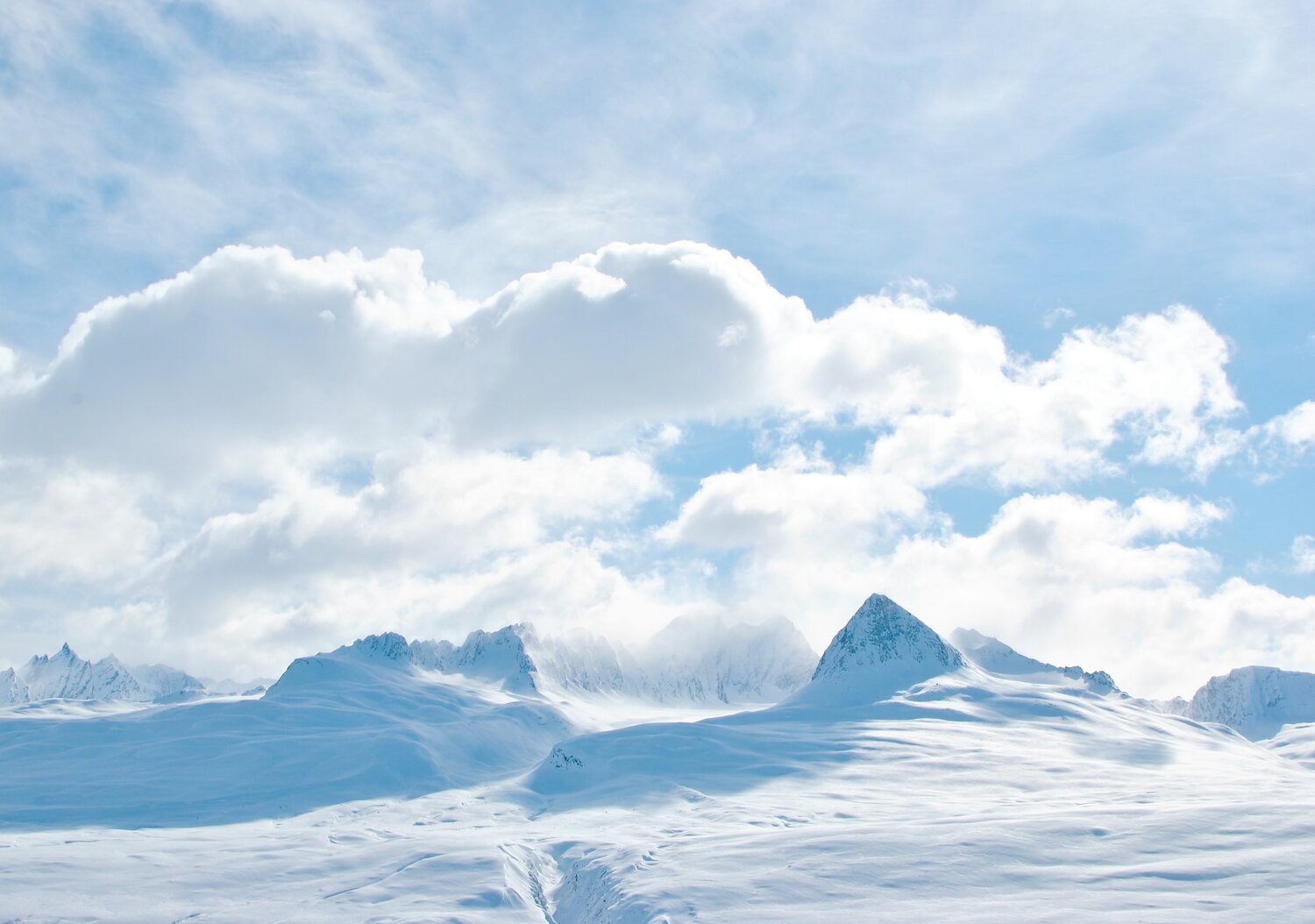
After graduating college, you moved home and help care for your father who was battling ALS. And I've been reading through your writing and you write about it very candidly and almost in like a visceral way. Writing about that can be helpful in one's grieving process, but I think an unintended consequence of that is also helping other people heal. Is that something that was intentional in your writing or was that just your way of working through it?
No, I think I kind of discovered my writing voice through that process. Really it all started when he first got sick and diagnosed, we were suddenly being bombarded by texts, calls, emails, people stopping by. Everybody wanting to know what was happening. How he was doing. What's the update? What's the plan?
And we just had no idea. Like it was just, you know, It was exhausting enough dealing with the process of what's going on, but then just as exhausting, trying to keep everybody who loves and cares about you, which is very nice, up to date. So we ended up starting just a blog. And me being a little creative, kind of took it over.
I've always been a pretty heart-open person. So, at first it was really just for our immediate friends and family and neighbors to let everybody know what was going on in a small newsletter form. And then he ended up being sick for almost five years and throughout that time we ended up growing a network of fellow patients with ALS, caregivers, other families that have been impacted and then people that just, you know, near and far friends and family that were following along.
I tried my best to just be really honest and open. It's funny as I get older, I can notice myself becoming a little more closed off in sharing that, but in the moment it was just so raw and real. And I think I was so emotionally charged almost all the time that that was really the outlet for that. And to share the real reality of what we were going through, and it did resonate with a lot of people.
It was never really the intention to relate to other people. But then as soon as you spend some time in that world of ALS, you find people that have gone through that same, unique, same unique, that's a little bit of an oxymoron, but it's a rare disease.
So not a ton of people go through that, but when you find the ones that do relate, they relate pretty well, and it's very important because in my own friend group or neighbor group, or family group, I felt very alone in my experience of what we were going through. But then the power of the internet lets you connect with people from anywhere who can relate. And honestly, I feel like that was such a gift.
And I've been thinking that in the future slash, the now, what I I'm more interested in sharing is the healing process and how I've chosen to live after something like that.
It's very moving how you continue to embody his legacy, and spirit, but, in the immediate aftermath, after your father had passed, you were going to reenter the workforce, do the nine to five thing. Were you just looking for any routine or was that the point of reassessment in your life?
So, that was really challenging because in college I kind of had this idea of what I would do, and I was so passionate about environmental policy, and I worked all these internships because I thought environmental law might've been a path for me. And then I worked in sustainability, thought I was going to go down that path
And then spent, really, two years away from the professional workforce, being a caregiver and working with my parents, and living with my parents. It was like the complete derailment. So then all of a sudden when he passed away, it was kind of like, okay, now what? I'm a little bit behind my peers. I'll just find an entry level something that's somewhat related.
I mostly chose my work based off where I knew I wanted to live. I was gonna move back in with my boyfriend at the time. And, yeah. I just got a job that was somewhat related to what I wanted to do. And, I thought structure and routine would be really good for me, but I just, I couldn't do it.
Like, my soul and my heart and my body, everything was just rejecting where I was and what I was doing. It was just too much of an energy and a momentum to be contained and, and suppressed. Which was scary because it's like, well, am I now writing myself out of the workforce? I already feel like I'm delayed. What am I doing with my life? All those kinds of things. And I'm not usually much of a quitter either. I think it comes back to being a little stubborn. It's like, well, I got this job I should follow through with it. Um, but it was like, I had to listen to all of my signals telling me you needed a big change.
How long did it take you to make that realization while you were in the workforce?
It was weeks. Yeah, it did not last very long and I felt pretty bad, obviously. It's like, you know, you go through the hiring process and they hire you for a reason. And I liked the people I was working with and was really trying to make it work and kind of thought there was like, oh, there's something wrong with me if I can't just stick this out.
But yeah, the cues from everything inside myself were way too strong to ignore.
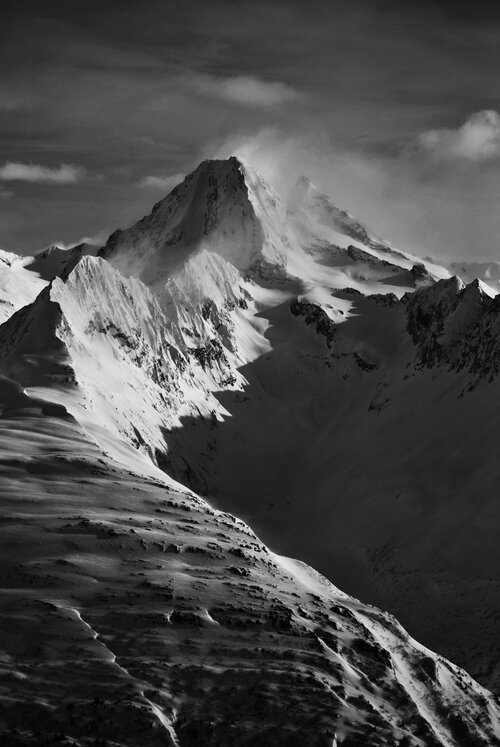
Can I ask what the soul-crushing nine to five job was before you made the leap is and what was the one that landed you in Valdez?
Sure, and it wasn't, I feel bad. It had nothing to do with the people or the job, But I was just working as an administrative assistant for the town that I was in, their Parks and Rec department. Public service has always kind of been my M.O. and they were hiring.
And then the three month job that landed me in Alaska was for a heli ski operation, which I was also kind of doing admin office stuff, but it got me outside. And it got me up here and I got to heli ski a few days and meet a bunch of amazing people.
And then, when that ended I didn't know what I was going to do, but I wasn't really worried about it at all. I just kind of had this innate trust and faith that something would work out. And I think I went one week without a job before I walked into a coffee shop in town, which there's only three, and I was ordering my coffee and the woman behind me says, "I love your voice. Do you listen to public radio?" I was like, uh, thank you and, yeah, actually kind of born and bred on NPR and she was like, "I'm Karen Allred. I am the morning host at KCHU, the local station here. I'm leaving in two months and I need a replacement. If you want a job, bring your resume tomorrow at 6:00 AM and we'll see if this is a good fit for you."
So that's kind of the three job jumped to where I landed at the radio station, which I had worked at for the last pretty much four years.
I was reading through your Gordini profile and one of your career highlights that you listed, and I quote, "getting dropped on top of The Books for my rookie shakedown my first time heli skiing in Alaska." Now, I have no idea what that sequence of words means together, but it sounds really cool. Can you tell me a little bit about the type of skiing you're doing?
Yeah. It's funny you read that sentence out loud and I'm like, yeah, that probably doesn't make a lot of sense to most people, it sounds like code words. When I first got here and I was working for that one outfitter. There were only two of us that were new to the operation this year.
So, the owner did what you would call a rookie shakedown. We're the two rookies on the team and we flew in the helicopter. He put us on top of a pretty steep run, which is this classic area of skiing in Thompson Pass, it's called The Books. It's very notorious, you see it in my photos all the time. It's so scenic and it looks like the gates of heaven really. It's gorgeous.
But, he put us on top of there and was like, okay, here we go. And then we skied that, and it was, oh, I was terrified at first, but it was probably still one of the best ski runs of my entire life. It was amazing. That was the first time I ever skied in Alaska, was up there. So that was pretty cool. And I was pretty hooked from there on out.
All the while you're, going from gig to gig, but you're taking photographs the whole time, of this beautiful Alaskan landscape. When did you first pick up a camera?
I think I've always I had a hankering towards photography, but I was a little shy slash embarrassed about it. I think in high school, I used to be a little more into music. I played music for a long time, and then I went more the athletic road. So I was focused on athletics and then really focused on academics. And I felt a little embarrassed about being artsy. I was like, okay I don't do art. I'm not an artist. I'm not any of that, but I have my little photos here and there. And I liked setting things up and trying to capture and share that stuff.
But then, towards the end of college, my brother had purchased just a super basic Nikon DSLR, and he used it for a few years and then he left it at home and I stole it right off the shelf and just started tinkering with it. And, yeah, just whenever I'd go on adventures, try to shoot things and, I don't know, just have fun with it.
Instagram has really been the only place where I'd put photos and I was only ever followed by friends and family and stuff, but I liked taking beautiful photos of the places that I would would go. And then, when I got here - actually before I even got here several years ago. I remember I did encounter my brother. And he had known that I had stolen this camera off his shelf. He wasn't too bothered, but he saw that I was shooting in like automatic. And he was like, okay, if you're actually gonna use this, you need to learn how to shoot in manual.
And I was like, I don't know how to do that. So I just went on Google and was like, how do you shoot manual? And then I was really bad at it for a while, but just played around with it and tried to figure it out myself and have developed, I don't know my eye or whatever you want to call it over the years.
And then I got here, and I mean, it's just the most magical, beautiful, dramatic, different scene-bombarding place I've ever seen. So it does lend itself to taking pretty good photographs. But I also feel like I am a little more spiritually, emotionally connected to this place. It's really easy to just walk outside and be like, click, and get this whole landscape. But I try to capture the little moods or moments that I see in my day-to-day of this place.
And it really has become my favorite form of communication. I love it.
Does your camera go with you every time you're heading out?
Not every time, but most of the time. I know a lot of professional photographers have much smaller setups and cameras that they'll bring them on expeditions or ski tours or even just day trips. It's funny, everything's supposed to be ultra light and, you know, shedding weight is really important. I have this massive camera and the zoom lens. That's kind of my niche right there so it's even bigger.
It depends. If I know the shooting conditions are going to be good, then I'll bring it. But yeah, it's almost always with me. And especially if I'm not just packing things in a backpack, if I'm on the boat or just going on a day hike or something too, then yeah. It's, it's almost always with me. I find that I regret not having it more than I regret having it.
Do you subscribe to the, you know, strictly Nikon or Canon? What are you shooting on?
I took whatever was free. That's just what I ended up with because that's what my brother had left behind at my parents' house. And then I actually busted it in November. I had gotten in a helicopter for what was literally the most scenic sunset, maybe of my life, but definitely of the last year. I took a bunch of videos of it because my camera had broken three photos in and I was just like, oh my God, this is so classic.
So, since then I've been borrowing my boyfriend's Canon. This is my first time using a Canon. And, uh, once I have a little bit more budget to replace it I've even been looking at Sony, So, I'm not, super loyal to any of the above. It's mostly just been what's wound up in my hands.
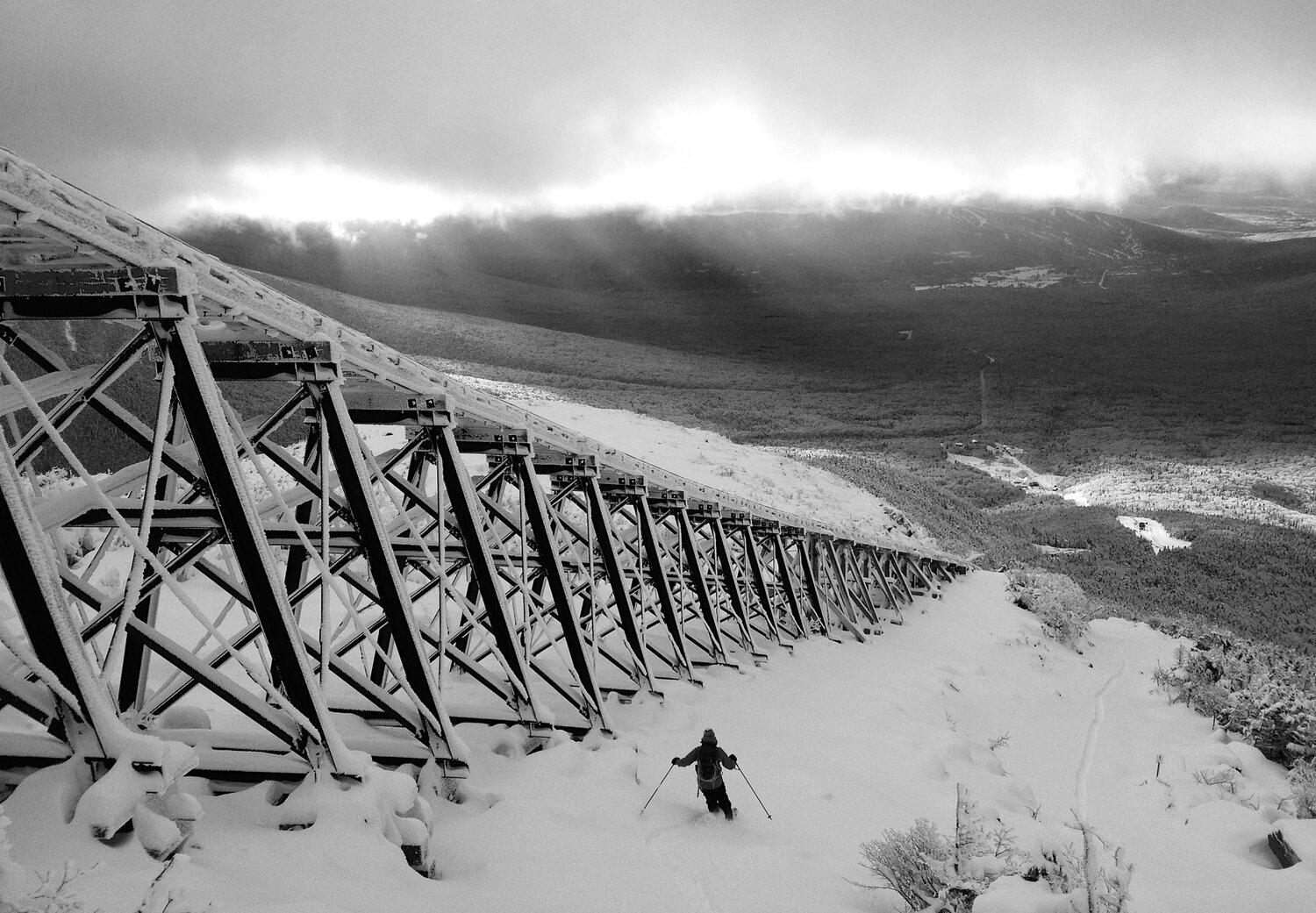
You have done campaigns with the Sierra Club, Fjällräven, Patagonia, I think, as well. How much planning goes into these campaigns that you do?
With the Sierra club, that was more like a few months of preparation. That was for a local Valdez climate, I don't want to say rally, it wasn't much of a rally, was more of a meetup, but 50 people showed up and that was a few weeks of preparation.
And then Fjällräven and Patagonia Snow were both other photographers, other creators, other campaigns that I got asked to be in front of the camera for, which was really fun. Especially Fjallraven, I got to go to Iceland, which I enjoyed tremendously. They asked me probably two or three weeks before and I didn't have to do much for that. I just kind of showed up and went hiking and really had a great time doing it.
Patagonia Snow was a photographer friend who was shooting for them. It was kind of fun doing the logistics of trying to figure out where to go and what light is good. The conditions were really terrible, but that's all just day to day planning of how that's all gonna come together.
Are there any dream clients you'd love to work with that maybe we can help you manifest into the universe?
Gosh, you know, I should probably have a list of dream clients, but I feel pretty content with my setup as it is for now. I just am keeping myself really open to seeing how my, my own career evolves. And I'm trying not to iron hand anything or have any sort of wild expectations. That's how my whole Valdez experience unfolded and transpired and being here was anything beyond my wildest dreams.
So, why would I limit myself, why don't I just see what happens? It's not to say that I don't have a few goals and things, but I don't think I have any super specific dream clients or anything. I think it'd be cool to work with like National Geographic someday, and I follow a lot of photographers from them and, and whatnot, but, I don't know. We'll see.
I think when people carve a non-traditional career path, the default is kind of to dismiss it as easygoing or lacking direction, but I think it almost requires a higher degree of diligence and organization. How do you stay organized day-to-day between all the hats you wear or have worn?
It's really funny, my boyfriend has one job and it's like, this is where he goes to work, comes home and that's that. We had dinner with some of his coworkers the other day and he was like, yeah, she wears all the hats. And she's extremely hyper-organized. And I don't know how she does it. We're just totally different in that way. And I agree, you have to be on top of your game and be flexible and also be open and all those kinds of things and have that sense of drive.
So I'm working for an actual employer and then I hustle other creative, freelance work, and then my photography and sometimes I'm at the radio station and then the oil spill response thing, which is, I think, what you were getting at at the beginning of the conversation.
All the little things I do, I make sure my calendar I use, iCalendar pretty religiously, but for the most part, I have the Notes app, a pinned note that I organize pretty much a 10 day outlook. And I will manually take everything for the next 10 days. Put it in a Monday, Tuesday, Wednesday kind of breakdown with, um, the little check mark, uh, bubbles next to everything.
So, you know, I put like an 8:00 AM, 10:00 AM this, and then, whatever I'm actually gonna try to get in throughout the day grocery shopping, or go to the boat or whatever else needs to be done, or even the fun things so that everyday I can actually just go to that more detailed, expanded note that has everything. I know how my day is going to kind of go.
And then I get that whole week outlook and then I check it off. I also work in slack. I work in Google drive, I'm using all these different organizing platforms, but that one note hosts, every single thing I'm doing. And it helps me stay on top of everything.
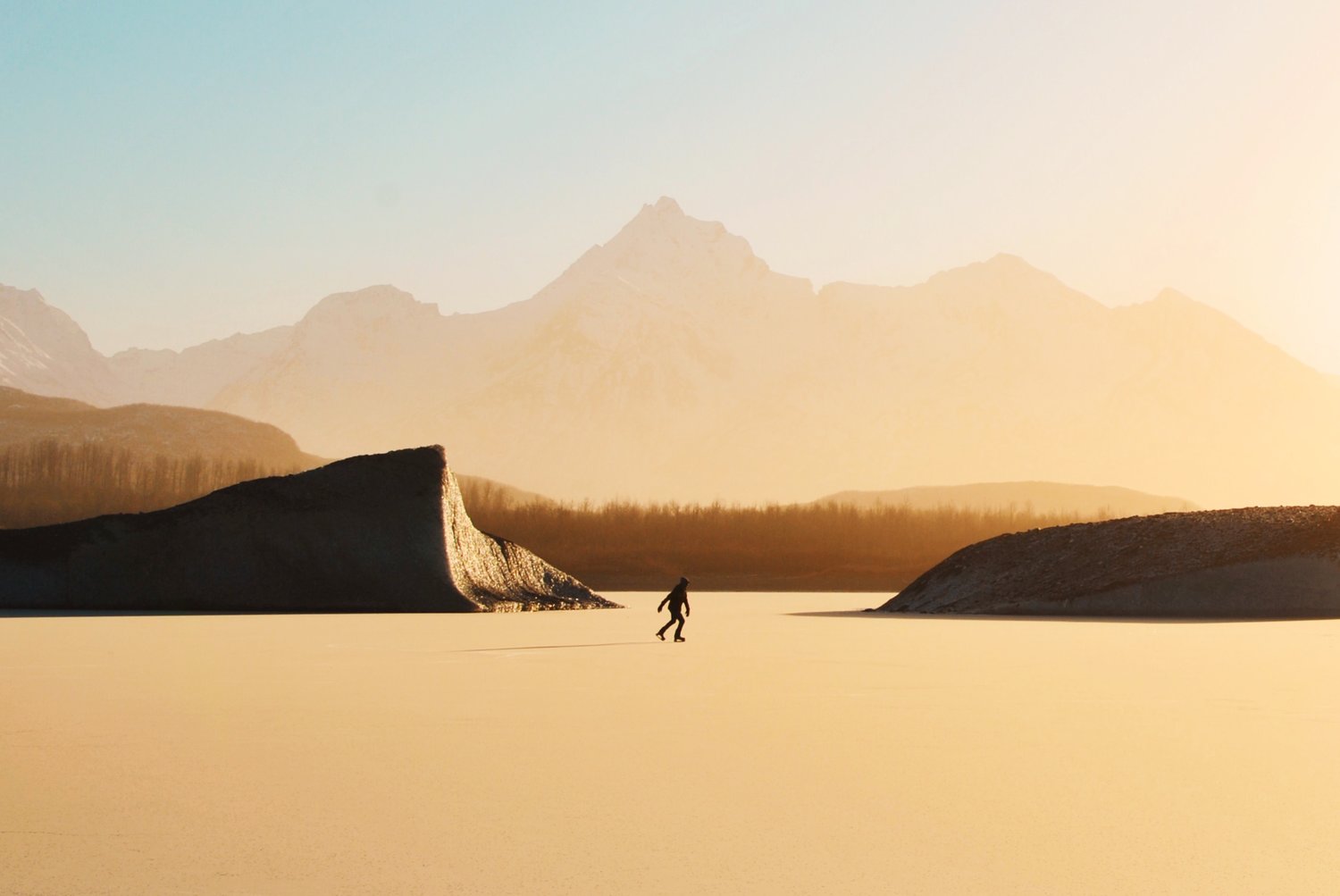
I think it's cool you've worked your way back into sustainability. Can you tell me a bit about the work you're doing now?
It's my first time working in the product manufacturing world in sustainability. and I'm helping this company who's really interested in making their products very circular and wanting the business to be as sustainable as possible. And doing it without the greenwashing, but doing it the right way.
So, I'm helping them source renewable energy for factory production. We were trying to, create an entire recycling program for all the products to be able to be sent back broken apart and then recycled into new products, all in-house pretty much. And then a whole materials database, trying to make all the materials that are going into all the different products environmentally preferred materials, stuff like that.
Things like offsetting shipments so that those are carbon neutral. And eventually kind of moving towards that carbon neutrality, but trying to do all the the nitty gritty things that really matter in all the different facets of the manufacturing and product world, rather than just "We're just buying this many trees in India to offset our, you know."
That's been really cool and it has kind of come full circle to getting back into that world. And I really enjoyed cause I was just doing sustainability consulting for them at first and then after working for them for like a year, they hired me to do more of the media and communication stuff too. All those hats.
Can you tell us what else you have coming up?
It's kind of funny. This has been my great year of cancellations. It's like, how do you flip it? Well, it's opportunity for something new or whatever. I was actually supposed to be on a plane in two days to go do a project that I'm really excited about which is another short film, but a little more abstract and like weird and skiing and spirituality and your feelings and, you know, taking the masks off and who really are you and those kinds of things.
Unfortunately, there's not enough snow to make that one happen in the location we were supposed to shoot that in. So, I was a little bummed about that, but room for other things going on. I'm trying to actually pour more time and effort into my own photography projects this year. I had a little print shop set up for a while but I'm trying to really revamp that and do it a bit differently.
And then, ideally, I'm hoping to be working on a photo book that also has snippets of writing in it as well. I'm kind of like, well, if all these other things for other people aren't working out, more time and energy I can pour into my own things. Starting off with the prints and doing a little bit more of that. And then, hopefully assembling at least the baby baby seedlings of what is kind of my dream book for right now.
I'll be one of the first orders of that book. Can you tell the listeners where they can find your work?
Sure. It's just my name, gabriellapalko.com and a lot of people know me as Gabby. That's usually what I go by. And then I'll have an email subscription link there sometime soon too, because, right now most of my audience is on Instagram. @GabbyPalko is my Instagram handle, but, um, I think, yeah, starting an email newsletter and having a little bit more original long form content, and writing, and photos there is what I'm going to try to move towards. So yeah, those two.
Gabby, thank you so much for taking the time to chat with me this morning. It's been an absolute pleasure getting to talk to you.
Yeah, thank you. I appreciate it.
Check out Gabby's website or follow her on Instagram @gabbypalko
